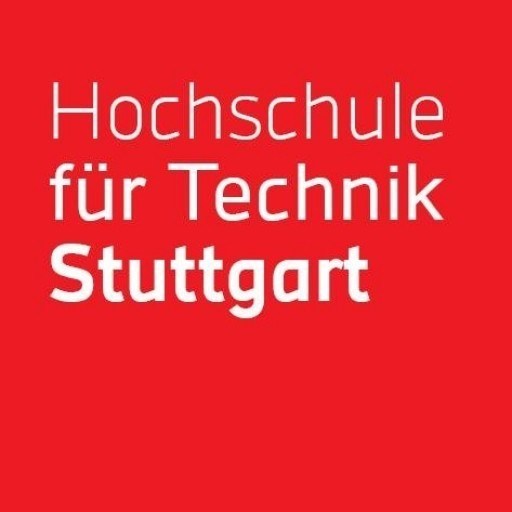This wide variety of tasks requires thorough knowledge in individual disciplines that are encountered in the broad spectrum of subjects in the programme in geodesy and geoinformatics at Leibniz Universität Hannover. Building on the broad content of the Bachelor's degree, the Master's programme offers students the chance to study numerous individual disciplines at an advanced level and to specialise in certain disciplines. In particular, current aspects of research and their advanced applications on the basis of selected projects are at the heart of the Master's programme.
Educational organisation
To do justice to the broad spectrum of the subject and constantly changing needs and methods, the geodesy and geoinformatics programme at Leibniz Universität Hannover covers a wide range of subjects.This programme is distinguished by its practical relevance. Alongside research-oriented theory, projects and seminars are deliberately designed to develop key competencies such as teamwork and problem-oriented actions. This combination makes it possible for graduates to choose from a broad spectrum of employment opportunities.
In the Master's programme, students pursue independent research and development activities in industry or research institutes. In the first semester, there are activities which serve to summarise the basics in six disciplines:
- Engineering geodesy
- Physical geodesy
- Positioning and navigation
- Photogrammetry and remote sensing
- GIS
- Space and Real Estate Management
In an optional module, students are given the opportunity to attend courses from the Leibniz Universität Hannover's entire selection of courses. The submission of a Master's thesis completes academic studies.
Study abroad unit(s)
Not compulsoryStudy abroad possible at numerous partner universities worldwide, internships abroad possible
Internships
Internships are possible at all study levels, usually during semester breaks. Due to close relations to industry and to the public sector, internships can be planned by students individually. Support is given by the faculty.Forms of assessment
Mostly oral exams (2, 3, 4, 5 ECTS), project work with essay and presentation (12 ECTS), presentation (2 ECTS), Master's thesis (30 ECTS)Course objectives
The Master of Science in Geodesy and Geoinformatics imparts a comprehensive specialists knowledge in both fields as well as in additional soft skills such as presentation techniques or project management.Graduates work for suppliers of geodetic measuring and evaluation systems, for software producers and geoinformation service providers, in manufacturing control, and in the construction industry. In the public sector they are employed in the fields of town and country surveying, in real estate land registry and rural development or in transport and planning authorities. The Master of Science qualification is an entry requirement for the higher technical administrative service. Moreover, graduates are employed at research facilities both within universities and externally.
Language requirements
Applicants must provide proof of either German or English language.German: TestDaF 4 or DSH 2 or equivalent
English: TOEFL 87 (Internet based), 550 (paper based) or 213 (new scale), IELTS (score: 6.0), Cambridge Certificate (FCE) Grade A, or be native speakers, or have had prior education with English as teaching language.
Academic requirements
Bachelor's or equivalent degree in Geodesy and Geoinformatics or similar studies. Please contact staff for details.Want to improve your English level for admission?
Prepare for the program requirements with English Online by the British Council.
- ✔️ Flexible study schedule
- ✔️ Experienced teachers
- ✔️ Certificate upon completion
📘 Recommended for students with an IELTS level of 6.0 or below.
Enrolment fees
Unless otherwise noted by the faculty, on enrolment, students have to pay approx. 370 EUR as an administrative fee incl. semester ticket (free public transport for six months in Hannover and on local trains within Lower Saxony).Costs of living
Expenses per month:Rent, additional costs: 282 EUR
Food: 148 EUR
Health (health insurance, medicine, consultations): 60 EUR
Clothing: 49 EUR
Telephone, internet, etc.: 43 EUR
Other (cultural events, sports, leisure activities): 81 EUR
Total costs of living: 663 EUR
Administrative/semester fee: 84 EUR
Other study costs: 45 EUR
Total study costs: 129 EUR
Total costs: 792 EUR
http://www.international.uni-hannover.de/lebenshaltungskosten.html?&L=1
Job opportunities
There are many opportunities to work as a student assistant (Hiwi) or outside of the university:http://www.international.uni-hannover.de/jobben_hannover.html?&L=1
Funding opportunities within the university
The university has a scholarship programme for excellent students (Deutschlandstipendium and Niedersachsenstipendium). Recipients receive 300 EUR per month, the scholarship is for two semesters.http://www.uni-hannover.de/en/studium/stipendien/
Arrival support
The International Office offers a variety of services and support for international students.It helps students in finding suitable accommodation, offers a pick-up service from the airport or railway station, provides newly arrived students with a "study buddy" and helps them deal with administrative issues. Moreover, it organises an orientation week at the beginning of each semester.
http://www.international.uni-hannover.de/
Services and support for international students
Every semester, the International Office organises a variety of events, workshops, and trips specifically for international students. They range from cultural, political, or historical topics to BBQs and rowing events.http://www.international.uni-hannover.de/events.html?&L=1
In addition, the International Office offers financial support for students in a situation of need.
http://www.international.uni-hannover.de/finanzielle-beihilfen.html?&L=1
Accommodation
The International Office, in cooperation with the "Studentenwerk" (Student Services), offers an accommodation service for all newly incoming international students and scholars. This free service can help you find a suitable room or apartment. In the case that you don't need your accommodation for a certain period of time, we can try to help you to rent out your room.Please contact: zimmervermittlung@io.uni-hannover.de










